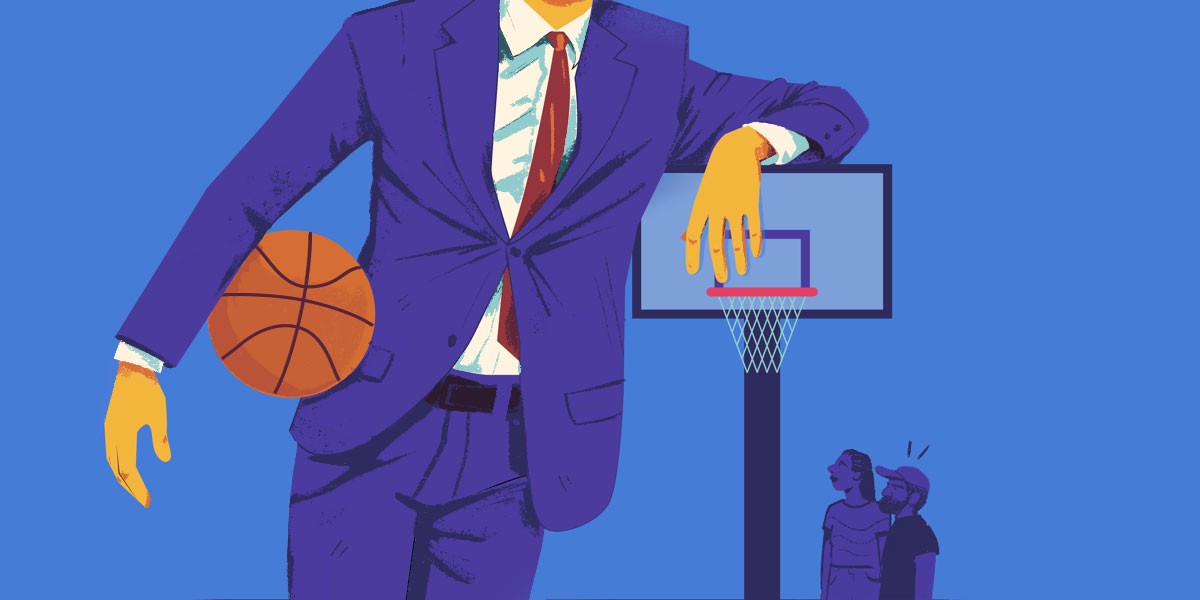
Doordash workers are embroiled in a bitter labor dispute with the company: at issue, the tips that “Dashers” depend on to make the difference between a living wage and the poorhouse. Doordash has a long history of abusing its workers’ tips; including a particularly ugly case brought by the Washington, D.C. Attorney General, only settled when Doordash paid back millions in stolen Dashers’ tips.
Doordash maintains that its workers are “independent contractors” who can pick and choose among the delivery jobs available from moment to moment, based on the expected compensation. Given the outsized role that tips play in Dashers’ compensation, you’d think that the company would tell the workers the size of the tip that its customers had offered on each job.
But that’s not the case. Though customers input their tips when they place their orders, the amount is hidden from drivers until they complete the job - turning each dispatch into a casino game where the dealer knows the payout in advance but the worker only finds out whether they’ve made or lost money on a delivery after it’s done.
Dashers aren’t stupid - nor are they technologically unsophisticated. Dashers made heavy use of Para, an app that inspected Doordash’s dispatch orders and let drivers preview the tips on offer before they took the job. Para allowed Dashers to act as truly independent agents who were entitled to the same information as the giant corporation that relied on their labor.
But what’s good for Dashers wasn’t good for Doordash: the company wants to fulfill orders, even if doing so means that a driver spends more on gas than they make in commissions. Hiding tip amounts from drivers allowed the company to keep drivers in the dark about which runs they should make and which ones they should decline.
That’s why Doordash changed its data-model to prevent Para from showing drivers tips. And rather than come clean about its goal of keeping drivers from knowing how much they would be paid, it made deceptive “privacy and data security” claims. Among its claims: that Para violated its terms of service by “scraping.”
Scraping is an old and honorable tool in the technologist’s toolkit, a cornerstone of Competitive Compatibility (AKA comcom, or adversarial interoperability). It allows developers to make new or improved technologies that connect to existing ones, with or without permission from the company that made the old system. Comcom lets users and toolsmiths collaborate to seize the means of computation, resisting disciplinary technologies like the bossware that is gradually imposing Doordash-style technological controls on all kinds of workers. It’s possible to do bad things with scraping - to commit privacy violations and worse - but there’s nothing intrinsically sinister about scraping.
Doordash loves comcom, when they’re the ones deploying it. The company routinely creates listings for restaurants that have never agreed to use it for delivery services, using “search engine optimization” and anticompetitive, loss-making pricing to interpose itself between struggling restaurateurs and their diners.
Dashers also have a long history of subverting the technological controls that make their working lives so hard. But despite Doordash’s celebration of “disruption,” it has zero tolerance for apps that turn the tables on technological control. So Doordash stopped providing the tip information in the stream of information, effectively eliminating Para’s ability to show crucial tip information to Dashers.
Dashers are not giving up. When their technology stopped working, they switched to coordinated labor action. At the top of their demands: the right to know what they’re going to be paid before they do a job - a perfectly reasonable thing to demand. The fact that Doordash intentionally designed an app to hide that information, and then cut off an app that tried to provide it, is ugly. Doordash should just tell Dashers the truth.
And if they won’t, Dashers should be allowed to continue to develop and run programs that extract that information from the Doordash app, even if that involves decrypting a message or doing something else that the company doesn’t like. Reverse-engineering a program and modifying it can be fully compatible with data-security and privacy.
Don’t get us wrong, the digital world needs strong legal privacy protections, which is why we support a strong federal privacy law with a private right of action. That way, your privacy would be protected whether or not a company decided to take it seriously. But it’s hard to see how giving Dashers good information about what they will be paid is a privacy problem. And we all need to be on alert for companies that use “privacy-washing” to defend business decisions that hurt workers.
Putting Doordash in charge of the information Dashers need would be a bad idea even if the company had a great privacy track-record (the company does not have a great privacy track-record!). It’s just too easy to use privacy as an all-purpose excuse for whatever restrictions the company wants to put on its technology.
Doordash didn’t invent this kind of spin. It is following the example set by a parade of large companies that break interoperability to improve their own bottom line at others’ expense, whether that’s HP claiming that it blocks third-party ink to protect you from blurry printouts, or car makers saying that they only want to shut down independent mechanics to defend you from murdering stalkers, or Facebook saying it only threatened accountability journalists as part of its mission to defend our privacy.
In a world where we use devices and networks to do everything from working to learning to being in community, the right to decide how those devices and networks work is fundamental. As the Dashers have shown us, when an app is your boss, you need a better app.
* This article was originally published here
HELP STOP THE SPREAD OF FAKE NEWS!
SHARE our articles and like our Facebook page and follow us on Twitter!




0 Comments